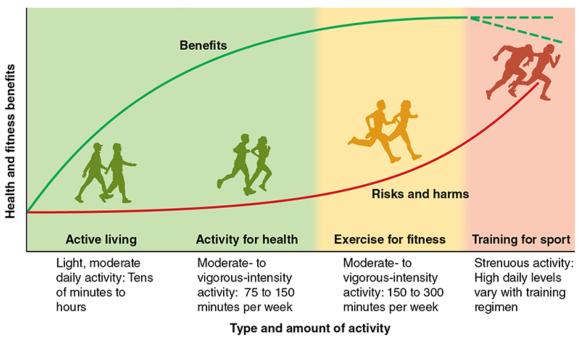

To determine the importance of physical activity for the above described common health problems There is some evidence which indicates that physical activity has a positive effect against the development and progress of these two diseases. Therefore, the purpose of this article was to review long-term effects of physical activity on the development of weight gain and obesity, CHD and type 2 diabetes mellitus in healthy adults.įurthermore, dementia and Alzheimer’s disease, two diseases which are of rising importance in modern societies and which develop over a long period of time, are regarded in the context of the long-term influences of physical activity. As opposed to this, only few long-term studies about the effect of physical activity on diseases exist, and to date there are no reviews that concentrate on long-term results in an epidemiologic view.

Many cross sectional studies have researched the relationship between physical activity and health outcomes - these results are summarized in quite a number of reviews. hypertension or obesity / high body weight) or top athletes, to discover the general progression of the researched complaints in the general population.Īlthough these diseases are very prominent in many western countries, only few longitudinal studies exist that focus on their development during a person’s lifetime and their association with other habitual factors such as physical activity. high risk groups, persons with indications of NCD (e.g. It is important to follow the general population and not specific subgroups, e.g. persons without obvious diseases at baseline examination, and a long term epidemiological view are necessary. To investigate the development of these diseases, longitudinal studies with healthy persons, i.e. Because NCDs develop, not only by definition, over a long period of time and may have many causes, understanding the development of these diseases and their association with habitual factors such as physical activity is important for developing long-term prevention programs and guidelines. All in all, cross-sectional studies suggest that physical activity may be an important factor for improving the general health and preventing the development of among others the above mentioned NCDs physical inactivity, unhealthy eating behaviour, smoking and alcohol consumption, and diseases in different study groups, e.g. Many cross-sectional and intervention studies have focused on the relationship between an unhealthy lifestyle, e.g.

More specifically, inactivity and unhealthy eating habits are associated with weight gain, overweight and obesity are the major underlying causes for modern diseases such as CHD or type 2 diabetes mellitus

Most NCDs primarily result from unhealthy lifestyles including the consumption of too much or unhealthy food The WHO identified for main types of NCDs: cardiovascular diseases, cancer, chronic respiratory diseases and diabetes Noncommunicable diseases are mostly diseases of slow progression and normally of long duration. The World Health Organisation has identified these three diseases as the most severe noncommunicable diseases (NCD) causing problems in today’s Western world Most of these diseases including obesity, cardiovascular heart diseases (CHD) or type 2 diabetes mellitus are caused by civilisation Especially in the last century, most Western countries have experienced significant demographic changes with a continuing increase in the number of older people who face medical and functional challenges, as well as diseases that are age-specific but have often originated in people’s younger years


 0 kommentar(er)
0 kommentar(er)
